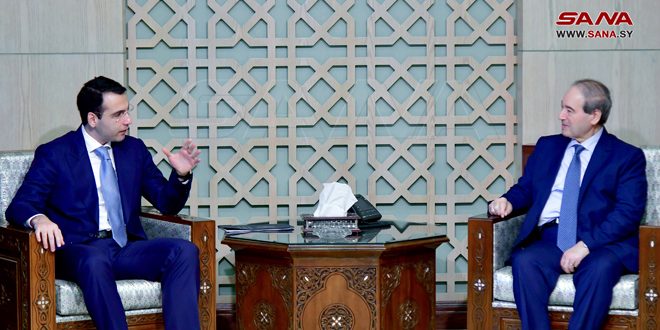Jordan’s persistent attacks on populated areas in southern Syria’s Suweida governorate have deeply impacted the local community, particularly affecting the lives of civilians in the southern and eastern countryside of the governorate.
In the latest series of attacks, the towns of Arman and Melh, situated south of Suweida, were targeted on January 18, resulting in the tragic loss of ten lives.
These airstrikes not only claimed human casualties but also caused extensive material damage, leading to the destruction of targeted homes and affecting neighbouring buildings. As a result, residents now live in constant fear of a potential recurrence of such devastating events.
Obsessions and psychological effects
The airstrikes have instilled significant concern among residents, particularly children, as reported by those surveyed by Enab Baladi in the affected area.
Marhaf al-Abdullah, an activist in the Suweida movement and a coordinator of protests in Arman, conveyed to Enab Baladi that the residents’ fear stems from the perceived randomness of the shelling. The targeted house in the town had no connection to the drug trade; instead, it was a residence adjacent to a property involved in these illicit operations.
Tragically, ten people lost their lives in the attack, with the majority belonging to the Hadda family, including women and children.
The aerial bombardment marks a distressing development in the governorate of Suweida, particularly because the region had been spared such attacks in previous years. Unlike other Syrian governorates continuously bombarded by the Syrian regime and the Russians, Suweida remained relatively untouched.
Abdullah added that apprehensions have taken root among the residents of Arman, especially among children, who fear the prospect of similar operations in the future. The psychological impact of witnessing the aftermath, coupled with the uncertainty of continued targeting, has left lasting effects on the community.
Lubna al-Baset, an activist in the Suweida movement, shared with Enab Baladi that the concerns in the area revolve around the potential recurrence of bombings, given that merchants live among civilians. Notably, major drug traffickers in the region had vacated their homes days before the targeting, leaving residents to bear the consequences of both their illicit activities and the indiscriminate Jordanian bombardment.
Ghassan al-Safadi, a resident of Arman, expressed to Enab Baladi that the damage inflicted on the villages of Melh and Arman resulted from “unjustified” targeting by Jordanian warplanes, causing civilian casualties and the destruction of homes.
Resentment in Suweida
As the Syrian regime persists in overlooking the Jordanian warplanes’ targeting of civilian homes in Suweida, activists within the peaceful movement strongly condemn these repeated attacks, conducted under the guise of combating drug traffickers.
Jamal al-Shoufi, a political researcher based in Suweida, expressed to Enab Baladi that such targeting is “morally and human rights condemnable” as it directly affects civilians and children. He emphasized that the strategy of targeting small traders is ineffective, even if it manages to achieve its intended goals of excluding individuals listed in Jordan as involved in drug trade operations. Shoufi argued that the manufacturing capabilities of the factory and the continuous training of new smugglers render this approach futile.
Activist Baset suggested that the Syrian regime, through its security components in Suweida, may be complicit in promoting drug trafficking, turning the governorate into a conduit for smuggling activities. This, in turn, has attracted gangs with weapons and security credentials, ultimately inviting the intervention of Jordan. She asserted that Jordan, having become a partner of the regime in civilian casualties, would be more effective in addressing the drug trade at its root sources, such as the Syrian regime, Lebanese Hezbollah, and Iran-backed militias in the region. Baset emphasized the need for Jordan to take a firm stance against these entities rather than pursuing political avenues that only serve to benefit the regime.
This article was translated and edited by The Syrian Observer. The Syrian Observer has not verified the content of this story. Responsibility for the information and views set out in this article lies entirely with the author.


